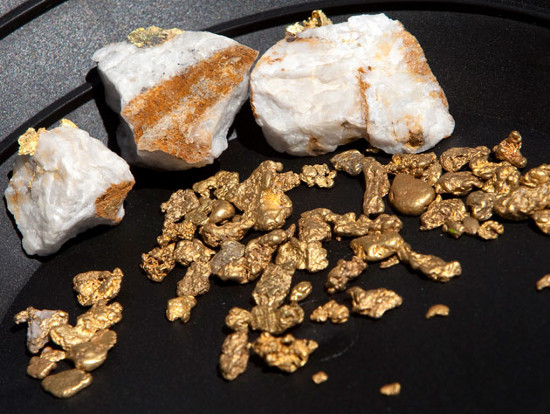Bacteria 'lay' golden eggs
Among the most bizarre creatures in the world there is a bacterium that transforms yellow water into tiny gold ingots.
Chemists always think hard about why Delftia acidovoran is often found on tiny gold bars.
The presence of gold has led scientists to hypothesize that they can produce gold molecules from dissolved gold, ie gold ions that have decomposed in water.

Some special bacteria are found to be able to excrete gold - (Photo: AFP)
However, the question here is how D.acidovoran can do that, because the gold solution is very toxic. According to experts from McMaster University (Canada), this special phenomenon lies in a molecule that bacteria excrete, which protects bacteria and converts toxic ions into gold molecules.
'The above finding is the first case to show that a special metabolite can protect the body from dissolved gold and promote the gold biochemical process' , that is, the mineral-producing life cycle, According to a report published in the Nature Chemical Biology magazine.
The molecule that experts mentioned is delftibactin A , capable of gold biochemistry within seconds in neutral pH conditions at normal temperatures, according to AFP co-author Nathan Magarvey.
In the previous study, another bacterium was also found on the gold pile, the scientific name is Ischiadicus metallidurans , which treats toxic substances by containing ions inside its cells.
Soluble gold, invisible to the naked eye, is found in waters, groundwater and other natural water sources.
- The most toxic and strange forms of bacteria on the planet
- What happens when you eat raw chicken eggs?
- Why do Americans put eggs in refrigerators and Europeans?
- Should eggs be eaten every day?
- 7 ways to eat nutritious eggs without getting bored
- Drug resistance of the virus
- How to eat eggs correctly?
- Very rare eye round eggs
- Eggs in eggs in Quang Ngai
- Identity suspect 'speeding' by Golden-i
- 5 scary bacteria on your hand
- How does golden staph bacteria enter through dangerous food?
 Why do potatoes have eyes?
Why do potatoes have eyes? 'Tragedy' the world's largest carnivorous life: Death becomes ... public toilet
'Tragedy' the world's largest carnivorous life: Death becomes ... public toilet Tomatoes were once considered 'poisonous' for 200 years
Tomatoes were once considered 'poisonous' for 200 years Detecting microscopic parasites on human face
Detecting microscopic parasites on human face